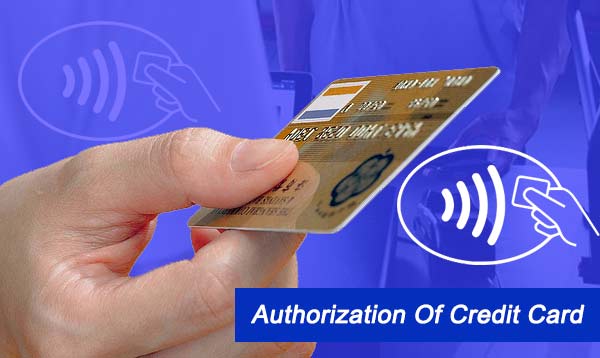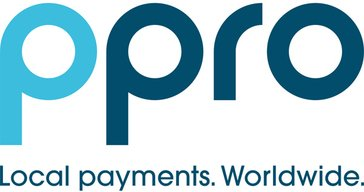Authorization Of Credit Card
Authorization Of Credit Card Table of Contents
- Authorization Of Credit Card
- Credit Card
- Card Authorization
- Process Of Credit Card Authorization
- People Involved In Credit Card Authorization
- Advantages Of Credit Card Authoriation
- Disadvantages Of Credit Card Autorization
- Things To Know About Card Authorization
- Authorization Hold
- Overview of Authorization Of Credit Card
- Best Payment gateway Solution by Rating
- Best Payment gateway Solution by Price
- Best Payment gateway Solution by Rated Features
- Check Your Payment gateway Solution Offers Round The Clock Support
- Make Sure Your Payment gateway Solution Offers The Features You Need
- Best Payment gateway Software Solution Verdict
- Payment gateway Software Frequently Asked Questions
- What is the best Payment gateway Solution?
- What is the cheapest Payment gateway Solution?
- Is there a free Payment gateway Solution?
- View all of the top Payment gateway Software Solutions
- Payment gateway Alternatives
- Payment gateway VS Side by Side Comparisons

Authorization Of Credit Card
Credit Card
A credit card, also known as a debit card, is a pre-paid payment card offered to consumers to allow the user to pay for goods and services on a credit basis usually through a bank. Unlike a debit card, which is used to make purchases with money deposited in an account, a credit card allows the consumer to make purchases without cash in his or her pocket. The money that is put on the credit card is typically referred to as credit. Consumers are not responsible for purchases until the outstanding balance is paid by the end of the billing period, called the credit limit.
Many people use credit cards to avoid the hassle of paying bills each month. Credit card providers can also charge high interest rates, exorbitant fees and impose late payment penalties on consumers who do not make their minimum monthly payments. On the other hand, many consumers use debit cards to avoid the hassle of making monthly payments. Debit cards offer consumers a fast means of making their purchases since there are no minimum monthly payments required.
Credit and debit card holders also have to watch out for fraud and theft. The most common victims of credit card fraud are owners of retail establishments and corporate businesses. With the use of swiping machines, thieves can easily charge purchases made by the credit card holder using fraudulent accounts. These charges will show up on the consumer's statement and will usually compel the consumer to pay for the purchases. On the other hand, when purchases are made with a debit card, and payments are made directly from the customer's account to the business, the balances shown on statements will not reflect the actual amounts of the purchases.
Card Authorization
Card authorization is an authorization by a cardholder, usually via a credit card processing company, that the consumer has enough funds in their account to pay for the full cost of an item. It can also refer to the process of getting that authorization from the issuing issuer as well. Often a charge card is used for online transactions since there is no need for a physical card to be present. The provider is responsible for authorization and any fees assessed by the financial institution that issued the credit card. There are many ways to get the authorization you may need. These include the traditional way of going to your bank, obtaining a blank credit card form from them or from one of the many companies that offer pre-paid and pre-activated debit cards.
When a business or consumer requests a card authorization online, they usually have to supply contact information such as their name, address and phone number. A business can use this information to verify employment and verify the availability of cash on the day of the purchase. A consumer can use this information to ensure the availability of funds in their account and usually also verify the identity of the person making the purchase. This is commonly referred to as point of sale verification and used in conjunction with the electronic transaction portion of the payment processing. A business cannot charge a customer for this service and there are penalties for doing so.
Many of the traditional payment processing methods include some form of card authorization. E-check is one of the more common ways of authorization in this setting. The customer's signature on the electronic check often provides evidence of the buyer's ownership of the item being purchased. This pre-authorization is used for e-check transactions and sometimes for automatic withdrawals from online accounts. Some banks use this method for automatic withdrawal of funds from a specified checking or savings account. It is important to remember, however, that this authorization must be maintained and it may be deleted by the end of the business day.
Process Of Credit Card Authorization
A credit card authorization is a formal process that is used to authorise a financial institution to issue a card to an authorized user. Processing the card involves passing a prescribed questionnaire by a processing agent and providing substantiating documentation such as identification and employment details. In most cases, authorization for a card is not given immediately by banks, but it often takes up to a few weeks before the requested card gets to a customer's hands. The processing of credit cards can take place in a variety of ways including computer networks, over the telephone lines, or by physically distributing the cards to the customer.
Processing an authorization involves at least two parties: the authorized user and the financial institution providing credit cards. The whole process of authorization starts with the issuing bank that creates an application that the customer fills in. The form requests details such as name, address, contact details and so on. Processing the application usually involves the submission of documents such as paycheck stubs, identification or employment papers or a copy of one's driving license. A customer who signs a contract to purchase goods or services or an electronic transaction must also sign an authorization form for the transaction to be completed successfully.
After completing the forms, an authorized user can go through a series of stages to acquire a card. First, a date for a payment will be set and the transaction will be credited. Once the date for payment comes, the transaction is complete and one must return the original cardholder statement along with a copy of the authorization to the issuer within twenty-four hours of the payment being received. With all these requirements in place, processing an authorization typically takes up to three days.
People Involved In Credit Card Authorization
When it comes to protecting yourself from identity theft, the people involved in credit card authorization processes can make a huge difference. For example, if you're working as a mortgage broker or an accountant, you need to be able to make it very clear to your client that you don't want their cards to be used for anything other than what they were intended for. Otherwise, they could be opening themselves up to identity theft by simply using the cards for unimportant things such as entertainment expenses, doctor visits and other nonessential expenses.
Likewise, those involved in the process of credit card processing need to be very clear about the fact that it is the credit card company's responsibility to protect your information. That means that if your client gets a hold of your credit card information while filling out an application for a new credit card, you need to make sure that they don't do it. It would be a shame if you didn't have all of your financial records on hand so that the client could go ahead and approve the credit card without your permission. In fact, many companies will actually ask for your signature on a form in order to complete processing of the application. Clearly, if you don't want to be among the list of victims involved in identity theft, you need to make it very clear to your clients the importance of keeping their information secure.
Finally, in terms of whether or not you should be involved with credit card processing yourself, you really need to consider how much you are actually familiar with the process. If you're not too familiar with it, then chances are that you'll be making errors which will accidentally be passed onto the credit card company. It also makes sense for you to know what you're dealing with in terms of the technical details of how the whole system works. Otherwise, you could find yourself being held responsible for errors that are due to your own mistakes.
Advantages Of Credit Card Authoriation
With the advent of secured credit card transactions, there has been a marked increase in the number of consumers who have begun to feel the need for a credit card authorization. There are so many advantages to utilizing this type of service. First, it eliminates the need for a consumer to carry cash, which is inconvenient. Another benefit is that with credit card authorization, the transaction can be completed quickly and easily, without having to wait on the retailer or issuer to send the transaction through to the bank. This expedited service also saves a consumer time, as all they have to do is simply swiping their card and sending the requisite amount and all of the associated benefits will be sent to their email address.
However, it is also important to note that with the convenience that is provided by authorized transactions, there also come some added fees. One such fee is the annual transaction charge. This fee is charged for any credit card transactions that take place during the course of a year. In essence, this fee is a requirement that a business must pay in order to access the various benefits associated with issuing credit cards. A typical institution will calculate this charge at a rate of around two percent, although it can vary significantly from one financial institution to the next.
The use of authorization codes, while convenient and relatively inexpensive for merchants, can also cause problems for the consumer. Unfortunately, not every business is familiar with how to implement these codes properly. As such, there are a number of individuals who have experienced firsthand the consequences of allowing an unauthorized transaction to go through. While most merchants are able to remedy these situations fairly easily, it is important for business owners to ensure that authorization codes are properly implemented and used when necessary.
Disadvantages Of Credit Card Autorization
There are many disadvantages of credit card authorization systems, however, it is important to note that these are really only disadvantages in the way they deter theft and protect you from fraud. It is important that you understand all the pros and cons of a credit card authorization system before making your final decision on what type of system you would like to install. You will want to look at the advantages of a credit card authorization system as well as the disadvantages so you can make a decision on whether or not you wish to install such a system on your company's credit cards. A credit card authorization system is an important part of any type of business that manages its own finances. In order to be completely safe from fraud, you will want to install a complete system that protects your business as well as yourself from possible fraudulent activities.
One of the most common disadvantages of credit card authorization systems is that many thieves do not care about whether or not a particular business accepts credit cards. Some thieves are specifically looking for a business that does not have a credit card processing system in place. This means if a business is not accepting credit cards, this is likely where a thief will try to make a transaction. However, there are businesses that are specifically looking for credit card processing systems who may be too concerned with the security of their business to even consider a store that does not accept credit cards. Another disadvantage is that some credit card authorization systems may not have all of the features needed to monitor all of your employee's spending. You may not have the right amount of reports available and you may not be aware of the activities of your employees.
If you decide to install a credit card authorization system in your business, you will want to find a vendor that has extensive experience in providing credit card authorization systems. Make sure to find a vendor that understands how the entire process works and one that offer multiple options for you to choose from. Remember, you do not always have to use an online application. You can also purchase your own authorization system and train your employees on how to use it.
Things To Know About Card Authorization
If you are the owner of a small business, chances are that you have a merchant account or at least a credit card authorization. It is important to keep this form of security among your business' assets, as it serves as proof of ownership for any financial transactions you make. As such, you will find that even minor mistakes can result in major problems if unauthorized charges are made, and this includes charges made when a customer does not know they are authorized to make the purchase they are making. In order to reduce these problems, it is important that you know the ins and outs of the card authorization process, which we will take into consideration below.
The first thing you need to know about card authorization is that it is divided into two parts. First, there is the process by which the customer submits their personal information, including their name, address, social security number, and other vital information. Second, the business owner actually enters their information into the system, including their name, address, contact information, and the location of the business. While the actual authorization process is usually not as complicated as it may seem on paper, it is still imperative that you keep good records of all credit card transactions, which will make it easier for you to look back and identify problems if they do occur in the future. After all, this is something that all credit card businesses need to do to ensure customer security, and while it may take a few extra hours of your time each month to perform all the necessary tasks, the results will be well worth the effort.
Next, there are a few other things that you need to know about card authorization that will help you determine whether or not it is the right solution for your business. For example, keep in mind that most banks only allow customers who live at or above a particular level of income to use their credit cards, which is another reason why you may need to have an authorized employee in place to sign for any and all card transactions. Another thing that you should definitely do is speak to your financial institution and ask them what types of penalties they have in place for fraudulent transactions. While some may seem like a joke, there are some instances where using a cell phone or pretending to be someone else on an account could get you in some serious trouble, so it is definitely wise to know the various options that you have in place for card authorization.
Authorization Hold
Authorization hold is a paid service provided by many credit and debit card services, wherein the provider places a hold on the amount authorized by the cardholder, lessening the balance of available cash before the cardholder clears the payment, before the transaction is complete or closed, or before the authorization expires. authorization hold minimizes the risk posed by unauthorized access by customers to their account, as well as incurring penalties for late payments. Most transactions are processed fairly quickly, usually within a minute or two, which is why this service has become so popular.
Credit and debit cardholders may also choose not to use authorization holds. Some choose to accept chargebacks, which are pre-approval for certain types of transactions that do not require authorization, such as debit card purchases made at kiosks and at car lots. Chargebacks are also most common for online transactions, and when a customer disputes a charge back, he must send the chargeback transaction history and information to the credit cardholder's financial institution within a thirty-day period. The financial institution will conduct its own investigation and, if it finds the dispute to be valid, will block the credit cardholder's chargeback or return the money charged to the cardholder's account.
Chargebacks should be avoided at all costs, particularly for online transactions. When you establish your business or when you make your payments online, you are taking on additional responsibilities that could have been handled by using authorization holds instead. If a transaction cannot be processed, it needs to go through, and sometimes, it just cannot happen. It is impossible to predict every possible type of circumstance that can occur throughout any given day, but you should at least have an understanding of the risks involved in accepting any type of chargeback, whether you initiated the chargeback or not. If a bank does not initiate the block or return the funds, you are taking on additional debt, a loss for your business, and more importantly, added financial stress.
Scroll down to read our indepth Ecommerce Platforms guide. What you should know, Ecommerce Platforms features, price plans and support. Pros and Cons of Ecommerce Platforms as a payment gateway, everything is explained below.
Overview of Authorization Of Credit Card
Spreedly is a software company that specialises in payment-gateway software for small to enterprise level businesses.
Spreedly is listed as the best payment-gateway software related to Ecommerce Platforms. Spreedly was founded in 2008 in Durham, NC and currently has over 79 employees registered on Linkedin.
Best PAYMENT GATEWAY Solution By Rating
Get our stories delivered
From us to your inbox weekly.
 Spreedly
Spreedly
 Simpl
Simpl
 allpago
allpago
 EBizCharge
EBizCharge
 Bolt
Bolt
 PayLane
PayLane
 Paytm Business
Paytm Business
 Apple Pay
Apple Pay
 Paystack
Paystack
 SquareUp Payment Method
SquareUp Payment Method
 Ingenico ePayments
Ingenico ePayments
 PayMart
PayMart
 Paymill
Paymill
 Yapstone
Yapstone
 TRUSTLY
TRUSTLY
 Wirize
Wirize
 Zotapay
Zotapay
 Zooz
Zooz
 Zipmark
Zipmark
 XTRM
XTRM
